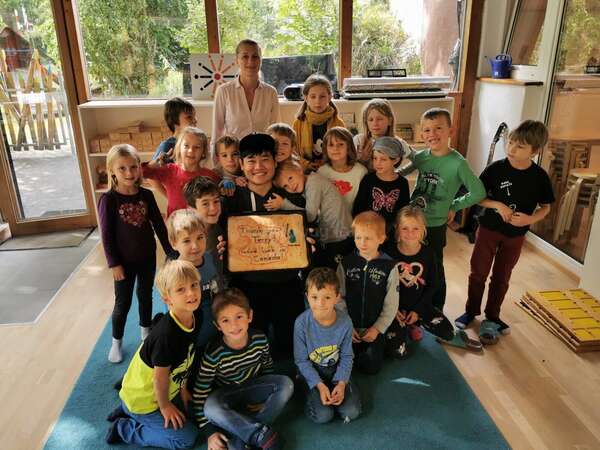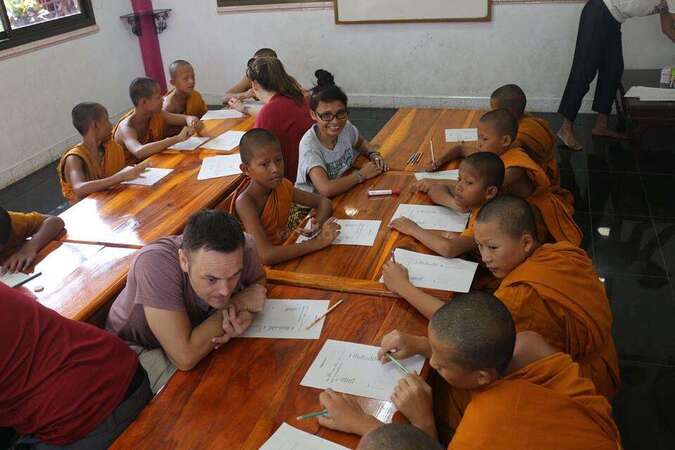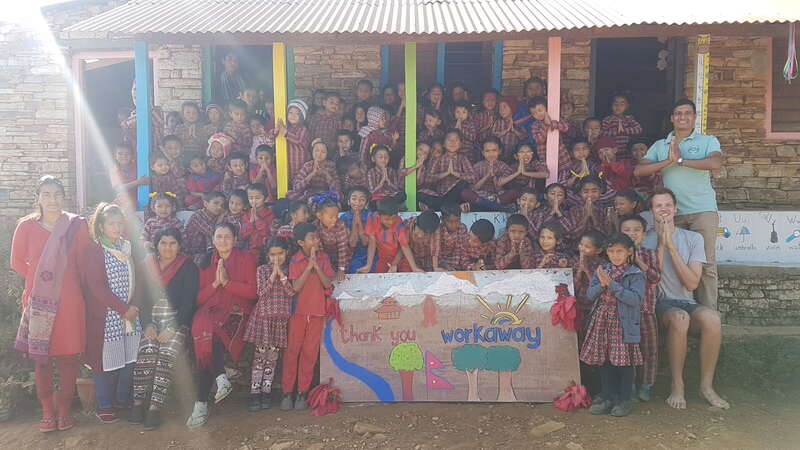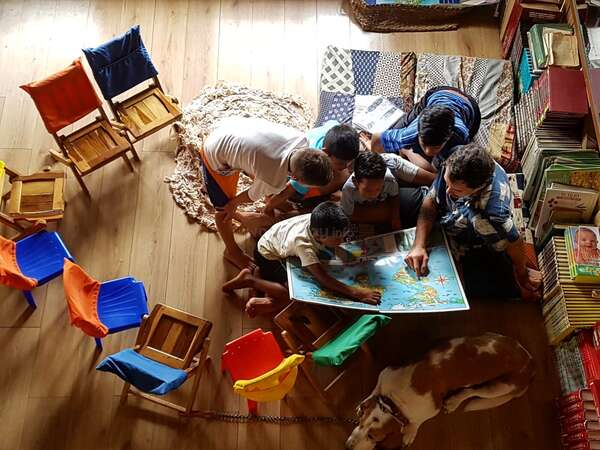So you’re a traveller who’s got your heart set on teaching abroad? Congratulations, you’re about to embark on a journey full of friends and fulfillment! Being a traveling teacher is definitely a rewarding experience that you simply cannot get as a tourist. By teaching language in particular, you get to closely communicate with your students on an everyday basis, share and exchange life stories, and fully immerse into the culture of any destination you’re visiting. If you’re teaching as a workawayer, you can even share meals, stay with your students or hosts for free, and maybe even earn some money to keep supporting your adventures!

What type of teacher are you?
A great teacher is a lot like a great
workawayer – a traveller who is helpful, kind and spreads positivity while learning about the world from their own unique perspective. People often ask whether teachers could be replaced by robots. I’m not sure, but it wouldn’t be easy, because
what makes a good teacher is often their human qualities: to create a nurturing learning environment, to show interest and empathy, and to respond to students' individual needs.From my years of English teaching experience, I find there are many different ways to be a teacher: you can be a performer or entertainer to emphasise new language, a coach to drill and encourage, a guide to support and an “animator” or referee in games.

How should I pick my first teaching opportunity abroad?
If you’ve read our article on
how to travel as a language teacher and already know what it takes to teach overseas as a workawayer, you’re already halfway there! The next step would be to pick a perfect Workaway
language exchange project or
teaching job abroad to get you started. With so many different types of projects available on Workaway – from homeschooling for a local family, being a teaching assistant at an off-grid community school, to practising English with an individual host, or teaching a youth hostel’s staff some useful phrases, here are a few questions to ask yourself and your host before settling on your first adventure:

Who?
Who will your students be?
Children like to learn through movement, momentum, songs and games.
Teenagers tend to be more self-conscious and it is important to listen to them and gradually build their trust. Once you discover their interests, you can include these topics in your lessons.
Adults often have a clear objective for their learning, it is important to be aware of their goal in order to cater to their needs.
Regardless of age, learning a new language can be challenging and frustrating at times. It is important for them to receive support and encouragement.

What?
What are the facilities and the conditions like? Do you have access to the Internet, photocopier, whiteboards or sound system? What books, materials or resources are available?
Where?
Will you be in a classroom or community space? Indoors or out? Is it part of a home-schooling initiative? The environment and amount of space often influences and determines the way you teach.

Why?
It’s important to know what the students’ needs or goals are, so that you can make sure you cover the relevant topics. These could be towards an academic achievement and exams, or for work-related motives. Others may want to enrich their lives through cultural exchange and future travel opportunities and/or friendships.

How?
Once you know why they are learning, then the method should become clearer. By identifying their objectives, you can observe their capabilities and what they need help with. Those studying for exams will need to follow a syllabus, those learning for work should practice functional language which they’ll need to do their job: role-plays, writing emails, telephone conversations etc. Young children, and those with the freedom to learn for the fun of it, can go at their own pace, determined by their own individual interests.
Every school has its own approach to teaching, but there is a lot of sense in the philosophy of acquiring a language in a similar way to how we picked up our own. In Workawayer Tianmin’s words:
“Nothing should be spoken before it has been heard.
Nothing should be read before it has been spoken.
Nothing should be written before it has been read.”

As a teacher, you can maximise this by:
Encouraging your students to react to spoken instructions whilst playing games, making things or learning a new skill. English can be learned whilst you teach them something completely different!
Finding ingenious ways to create a real need for students to speak to one another, through: puzzles, interviews, relay-races with messages or guessing games.
Keeping classes lively and entertaining, combining music, movement, interaction and games (especially with children).
Remembering that however limited your learning facilities are, your most valuable resources are the students themselves: their news and interests, their interaction with each other as well as the environment you are in.
Making use of tools is also a helpful way to keep your lessons effective and fun! You can upload teachers’ resource books, videos and music to your devices or pendrive: a good grammar reference book is essential, as well as ideas for games and 5 minute filler activities for warm ups or final 5 minutes. Students might like to see photos of your family and hometown, and you could either bring an instrument to play in class or your favourite tracks to sing along to. Bear in mind that lyrics that are clear, simple and include commonly used language and expressions are more useful.

Beyond your qualifications and the tools you could use as a teacher, what’s special about teaching as a workawayer is our ability to bring a slice of our world into any setting and classroom. When we get to not only help a student in learning or polishing their language, but also facilitate genuine cultural exchange opportunities through the experience, the joy we gain and share is truly priceless. Now… are you ready to start your volunteer teaching journey?















